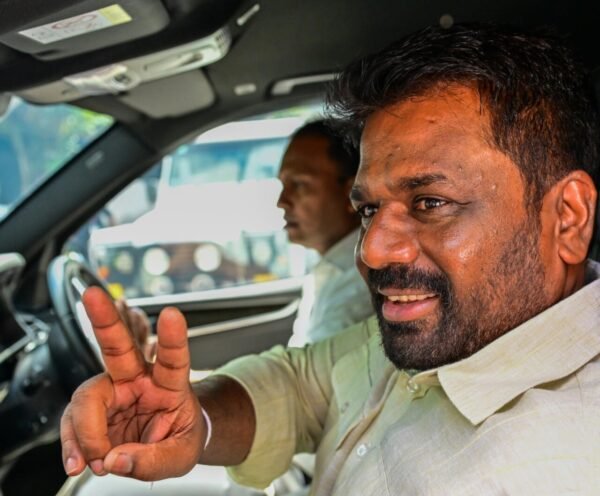Landslide Victory For Sri Lankan President’s Party In Snap Elections, ‘Current political moment in Sri Lanka gives JVP a chance to rewrite history’

In a significant political shift, Sri Lanka’s leftist coalition, the National People’s Power (NPP), led by President Anura Kumara Dissanayake, has achieved a landslide victory in the recent snap parliamentary elections held on November 14, 2024. This election marks a pivotal moment for the country, as it comes on the heels of a severe economic crisis and widespread public discontent with previous administrations.
Election Results Overview
- Vote Share: The NPP captured approximately 63% of the votes, translating to 159 out of 225 parliamentary seats.
- Opposition Performance: The main opposition party, the Samagi Jana Balawegaya (SJB), led by Sajith Premadasa, secured only about 40 seats.
- Voter Turnout: The turnout was around 65%, lower than the nearly 80% participation in the presidential elections held just two months prior.
This decisive victory enables Dissanayake to consolidate power and advance his agenda without needing to rely on coalition partners. His party’s success is particularly notable given that it held only three seats in the outgoing parliament.
Implications of the Victory
Dissanayake’s administration is expected to focus on several key areas:
- Economic Reforms: The new government aims to tackle corruption and implement reforms necessary for economic recovery. Dissanayake has expressed intentions to renegotiate Sri Lanka’s $2.9 billion bailout agreement with the International Monetary Fund (IMF) to better support struggling citizens.
- Political Landscape: This election signifies a rejection of traditional political dynasties that have dominated Sri Lankan politics for decades. Many former parliamentarians opted not to seek re-election, reflecting a shift in voter sentiment towards new leadership.
- Ethnic Relations: Although Dissanayake’s party has historically faced challenges in Tamil-majority areas, its recent performance suggests a potential shift in how economic issues are prioritized over ethnic divisions in this election cycle.
JVP’s Historical Context
The Janatha Vimukthi Peramuna (JVP), Dissanayake’s party, has a tumultuous history marked by past insurrections against the government in the late 20th century. However, under Dissanayake’s leadership, the JVP has rebranded itself as a more moderate leftist party focused on anti-corruption and social welfare policies. This transformation appears to have resonated with voters seeking change amid ongoing economic difficulties.
The recent elections have positioned Anura Kumara Dissanayake and his NPP for significant influence over Sri Lanka’s future direction. With a strong mandate from voters, Dissanayake faces the dual challenge of delivering on ambitious reform promises while navigating a complex socio-political landscape. The outcome of this election may indeed allow the JVP to “rewrite history” by establishing itself as a formidable force in Sri Lankan politics moving forward.
